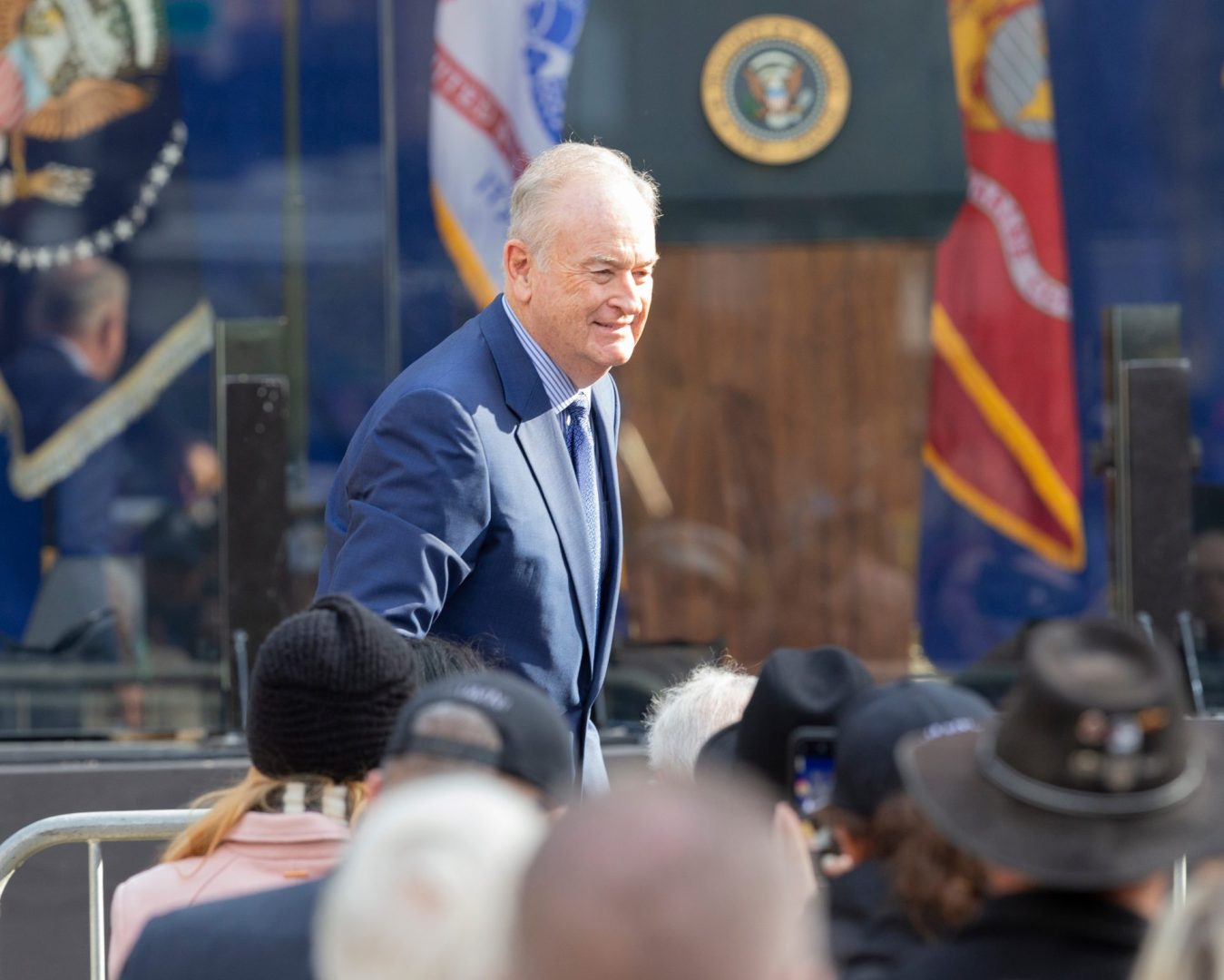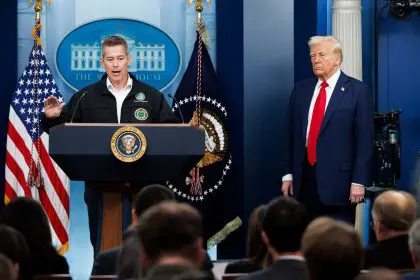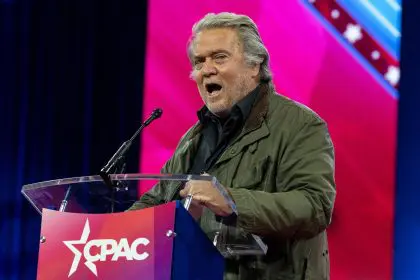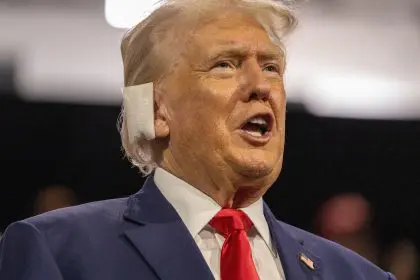Former Fox News host Bill O’Reilly has disclosed details of a private conversation he had with President Trump in March about the Jeffrey Epstein case, revealing Trump’s concerns about innocent people being unfairly implicated in the disgraced financier’s crimes. The discussion took place on St. Patrick’s Day and centered around the controversial debate over releasing names associated with Epstein.
The revelation comes as the Trump administration faces criticism over the Justice Department’s recent memo concluding that Epstein did not maintain a client list for blackmail purposes, contradicting years of conspiracy theories. The memo also confirmed that Epstein died by suicide in 2019, refuting claims of foul play surrounding his death in prison.
O’Reilly’s disclosure of the private conversation provides insight into Trump’s thinking on one of the most sensitive and controversial cases in recent American history. The former president’s concerns about protecting innocent individuals reflects the complex challenges surrounding the Epstein case and its far-reaching implications for numerous high-profile figures.
1. Trump expresses concern for innocent associates
During their March conversation, Trump told O’Reilly that many names associated with Epstein had nothing to do with the financier’s criminal conduct. The president emphasized that some individuals may have had innocent business lunches or correspondence with Epstein for legitimate reasons unrelated to any illegal activities.
Trump’s perspective highlights the complexity of the Epstein case, where association doesn’t necessarily imply complicity in criminal behavior. Many prominent figures from business, politics, and entertainment had various forms of contact with Epstein before his crimes became public knowledge.
The former president’s concerns about context reflect broader worries about how information might be interpreted without proper background or explanation. In today’s media environment, even innocent associations can lead to lasting reputational damage and public condemnation.
This nuanced view of the situation demonstrates Trump’s awareness of the potential for collateral damage when high-profile cases involve extensive social and business networks spanning multiple decades and industries.
2. O’Reilly warns about media coverage consequences
O’Reilly expressed agreement with Trump’s concerns, warning that releasing names without proper context could destroy innocent people’s reputations. He argued that modern media coverage often lacks the nuance needed to properly explain complex situations involving multiple parties and varying levels of involvement.
The former Fox News host emphasized that once names are released publicly, the damage to reputations occurs immediately and often irreversibly, regardless of later clarifications or corrections. This concern reflects broader issues about how information spreads in the digital age and the challenges of providing adequate context.
O’Reilly’s media experience gives weight to his warnings about coverage patterns and the tendency for complex stories to be oversimplified in public discourse. His perspective highlights the tension between transparency and protecting innocent individuals from unfair association.
The discussion reveals ongoing debates about how to balance public interest in government transparency with concerns about protecting individuals who may have had legitimate, innocent interactions with controversial figures.
3. Alternative approach suggested for case handling
Rather than releasing names without context, O’Reilly proposed that Attorney General Pam Bondi hold a press conference to address the Epstein case comprehensively. This approach would allow for proper context and explanation while still providing public information about the investigation.
The suggested press conference format would enable officials to distinguish between different types of associations and provide appropriate context for public understanding. This method could potentially satisfy demands for transparency while protecting innocent individuals from unfair implications.
O’Reilly even suggested that former Attorney General Merrick Garland should participate in such a press conference, indicating a bipartisan approach to addressing public concerns about the case. This proposal reflects efforts to depoliticize the handling of sensitive information.
The recommendation demonstrates recognition that complex cases require sophisticated communication strategies that go beyond simple document releases or categorical denials of information access.
4. Justice Department memo sparks controversy
The Trump administration faces significant criticism following the Justice Department’s release of a memo concluding that Epstein did not maintain a client list for blackmail purposes. This finding contradicts years of speculation and conspiracy theories that suggested the existence of such compromising materials.
The memo’s conclusions about Epstein’s suicide have also generated controversy, with some questioning the thoroughness of the investigation and others expressing skepticism about the official findings. These debates reflect broader concerns about government transparency and accountability.
White House press secretary Karoline Leavitt explained that some materials were not released due to their graphic nature and the presence of child pornography, which would be inappropriate for public consumption. This explanation highlights the complex considerations involved in balancing transparency with public safety.
The administration’s handling of the memo release demonstrates the challenges of addressing public demands for information while navigating legal, ethical, and practical constraints that limit what can be disclosed.
5. Trump shows frustration with continued focus
During a recent Cabinet meeting, Trump expressed exasperation when reporters continued asking questions about the Epstein case, particularly given other pressing national issues. His frustration reflects concerns about media priorities and the ongoing attention devoted to the case.
The president’s reaction suggests fatigue with the persistent focus on Epstein-related matters when the administration faces numerous other challenges requiring attention and resources. This perspective highlights competing priorities in government and media coverage.
Trump’s characterization of continued Epstein questions as inappropriate timing demonstrates his view that other issues deserve greater priority and public attention. His comments reveal tension between media interest and administrative priorities.
The exchange illustrates ongoing debates about which stories deserve prominent coverage and how long controversial cases should remain in the public spotlight, particularly when official investigations have reached conclusions.
Implications for transparency and accountability
The O’Reilly revelation adds complexity to ongoing debates about government transparency and the handling of sensitive information involving high-profile figures. The conversation highlights tensions between public interest in disclosure and concerns about protecting innocent individuals.
The discussion also reflects broader challenges facing the Trump administration in addressing conspiracy theories and public skepticism about official findings. Balancing transparency with responsible information handling remains a significant challenge.
The case continues to generate controversy and speculation, despite official conclusions about Epstein’s death and the absence of blackmail materials. This ongoing interest reflects deeper concerns about accountability and justice in high-profile cases.
As the administration navigates these complex issues, the handling of the Epstein case may serve as a precedent for how future sensitive investigations are managed and communicated to the public.

















